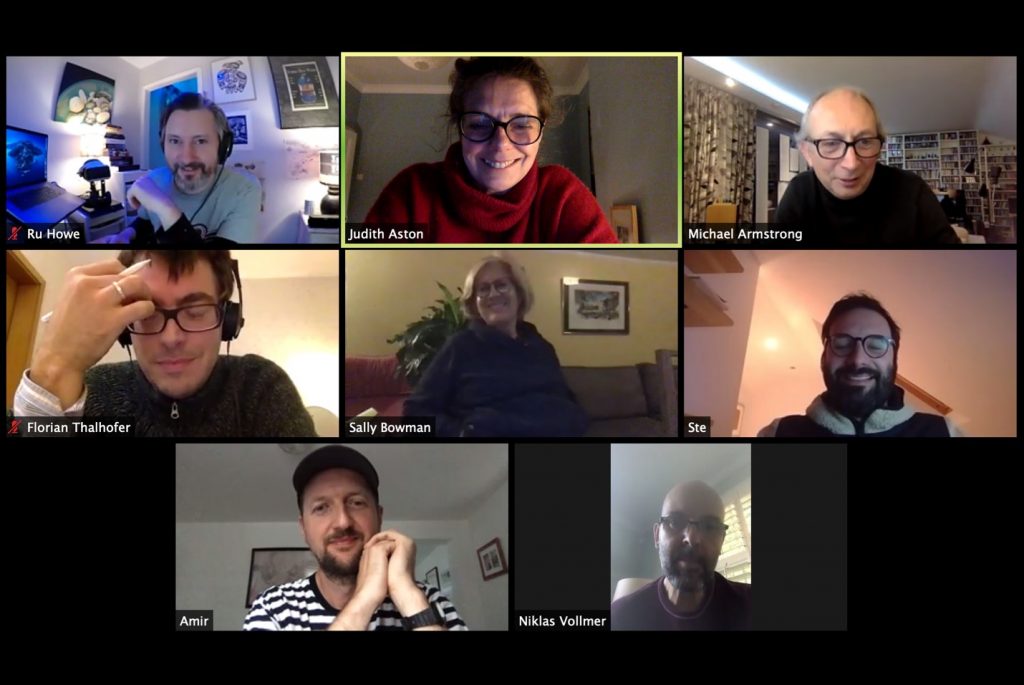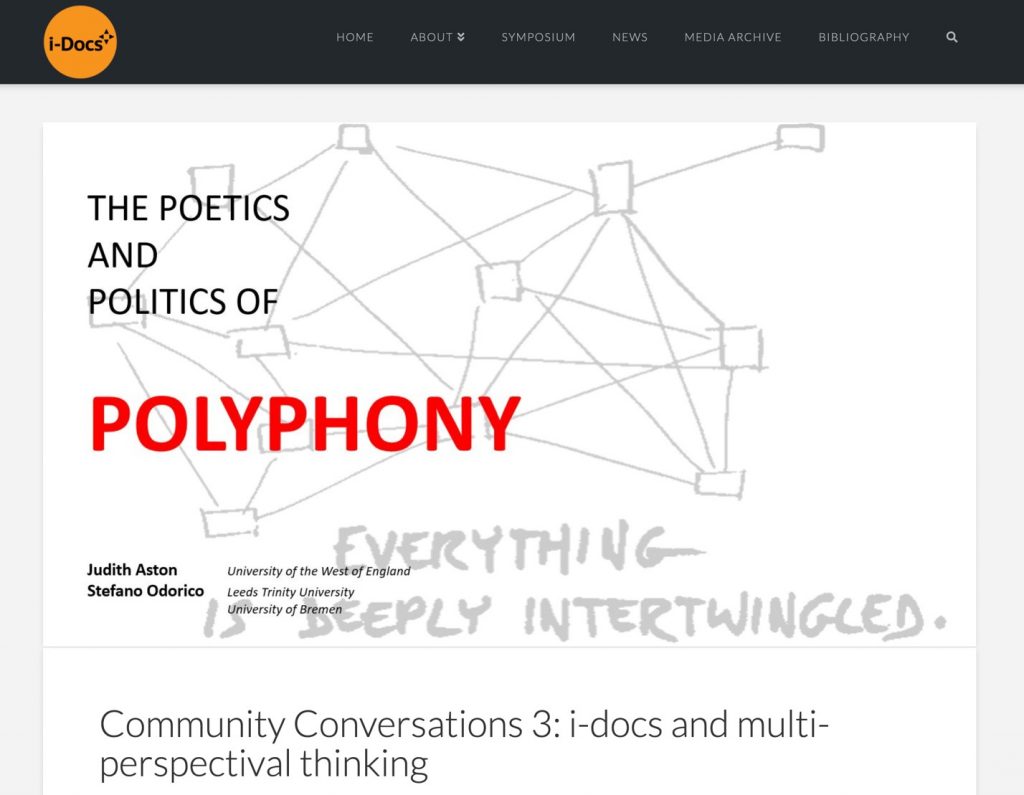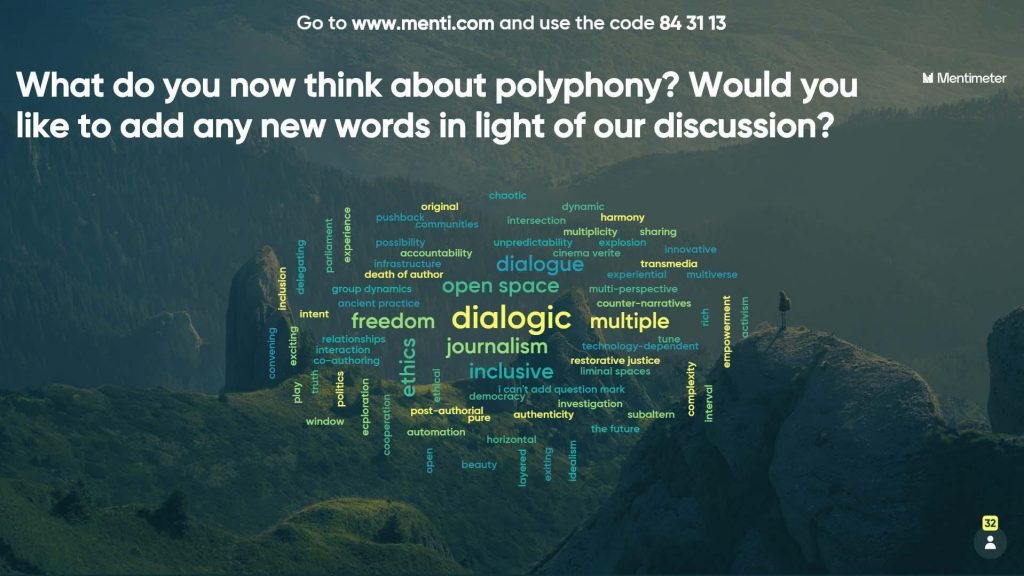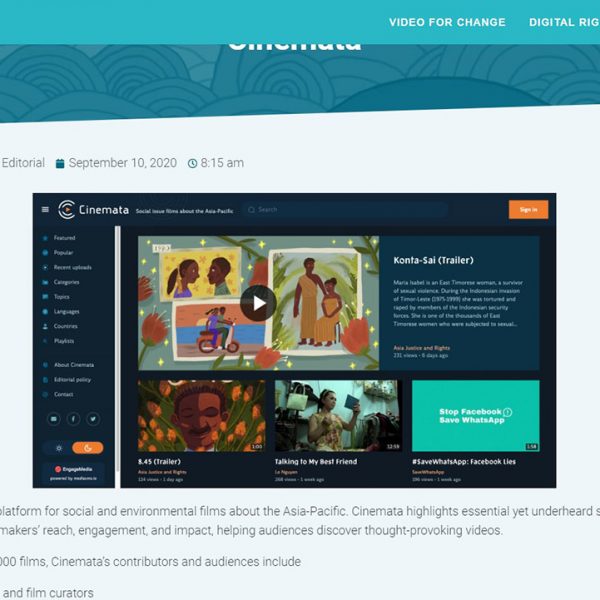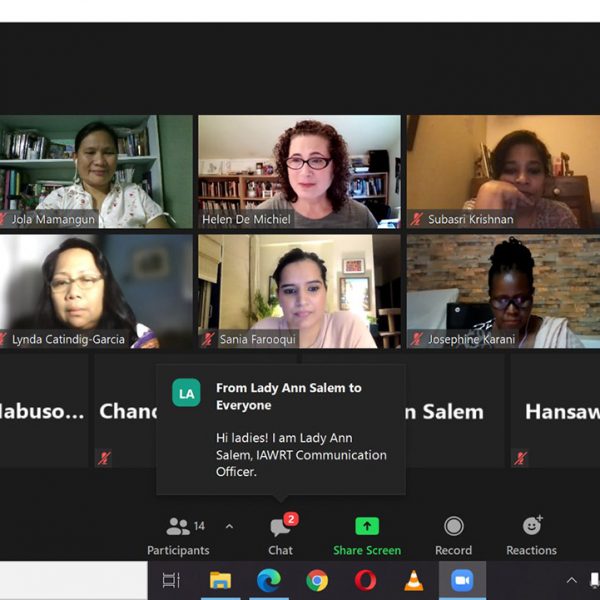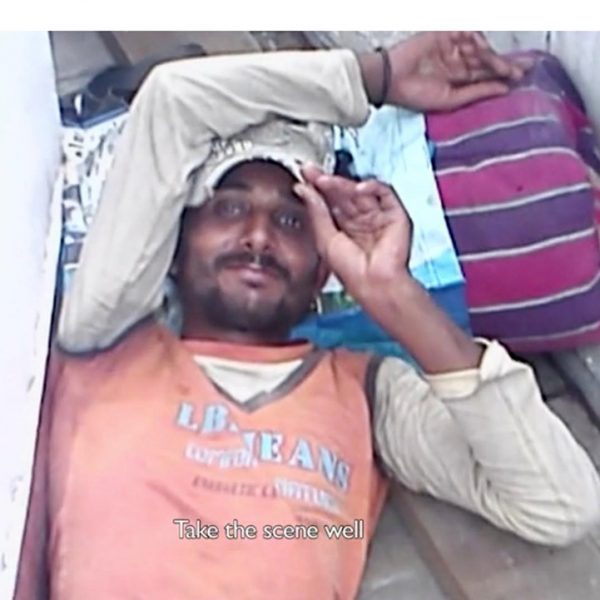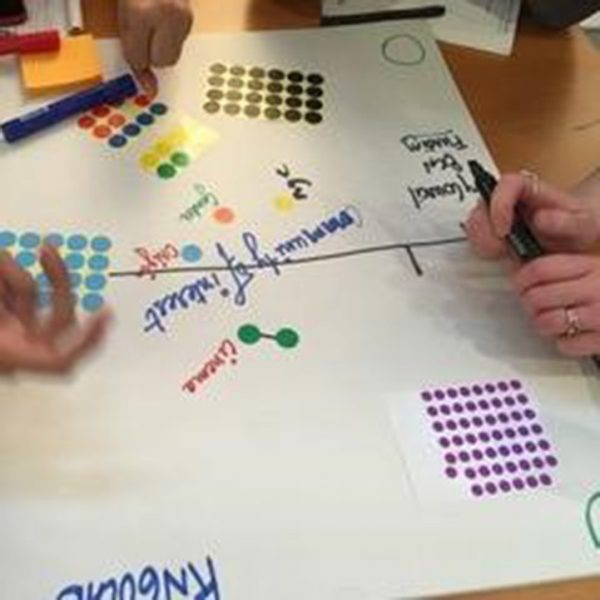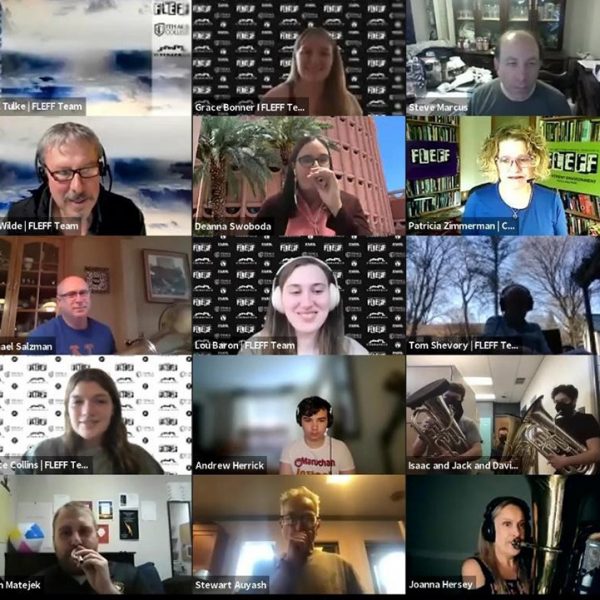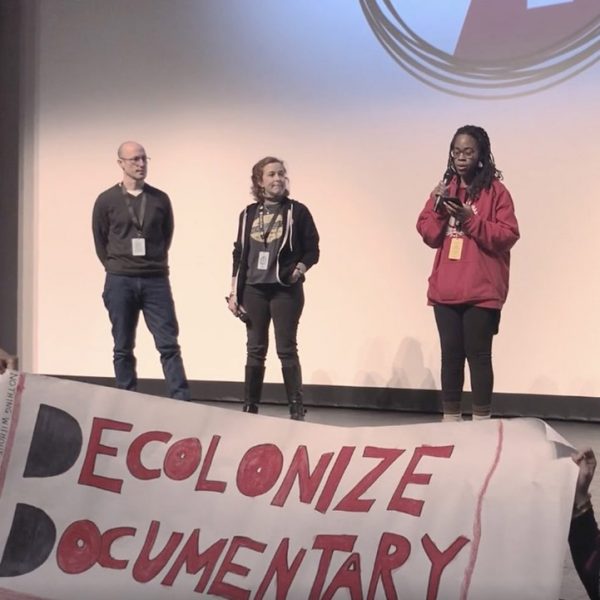The i-Docs symposium has fallen into a pattern of being held in Bristol every two years. However, for the 2021 symposium, we had already begun to re-think this strategy given our core theme of climate emergency.
How could we justify the carbon footprint created by bringing everyone to Bristol? What hybrid models could we conceive where some events might be held elsewhere? Could we hold some simultaneous events using digital technology to connect and create transnational dialogue, building on the liveness of the conference format?
We started this process by collaborating with Liz Miller from Concordia University as part of our 2020 symposium. Liz curated a program of keynotes, panels, and workshops, some of which we planned to livestream at i-Docs, subsequently creating digital hook-ups at key touch-points. We saw this as the first step in a radical experiment in climate-aware conferencing.
Scheduled for March 2020, the same month that the UK’s chaotic lock-down finally began, the symposium had to be postponed. Only a few weeks away from launching our full program, this delay was devastating.
However, we re-grouped.
We met virtually with Liz to imagine how we could draw something positive from the situation. The result was an ongoing series of meetings with her and fellow i-Docs colleague, Sharon Daniel. We shared experiences, exchanged ideas, and enjoyed each other’s company.
One outcome of these meetings was to launch a new online series called “i-Docs Community Conversations.” Putting “community” in the title was deliberate to emphasize the spirit of fluidity, openness, dialogue, exchange, and collaboration that i-Docs has always held at its core.
Our first Community Conversation was held in July 2020, a few weeks after the first Co-creation Convening in June. Because both events were looking at co-creation in times of pandemic, we cross-promoted these events. We have remained committed to ongoing exchange across our common orientations, goals, and projects.
Our Community Conversations aim to break down hierarchies and create inclusive spaces for dialogue and exchange. The advantages of the digital are clear. Anyone with access to a computer or smartphone can register to attend. This allows people who previously would not have been able to be present in Bristol to join as equals online.
To date, we have mounted four events building on themes initially developed for the 2020 symposium: co-creating in times of corona pandemic, creative practice and climate crisis, i-docs and multiperspectival thinking, and immersive audiences.
These events have opened up opportunities to explore documentary ideas and practices in a more genuinely transnational context than previously possible.
Our involvement with the Co-creation Convenings has been key with multiple crossings of concepts, discussions, and ideas. One clear example is our common commitment to a theme that intersects with co-creation and resonates strongly across our shared spaces – polyphony.
Polyphony resides in the heart of i-Docs, and was key to our third community conversation on multi-perspectival thinking.
